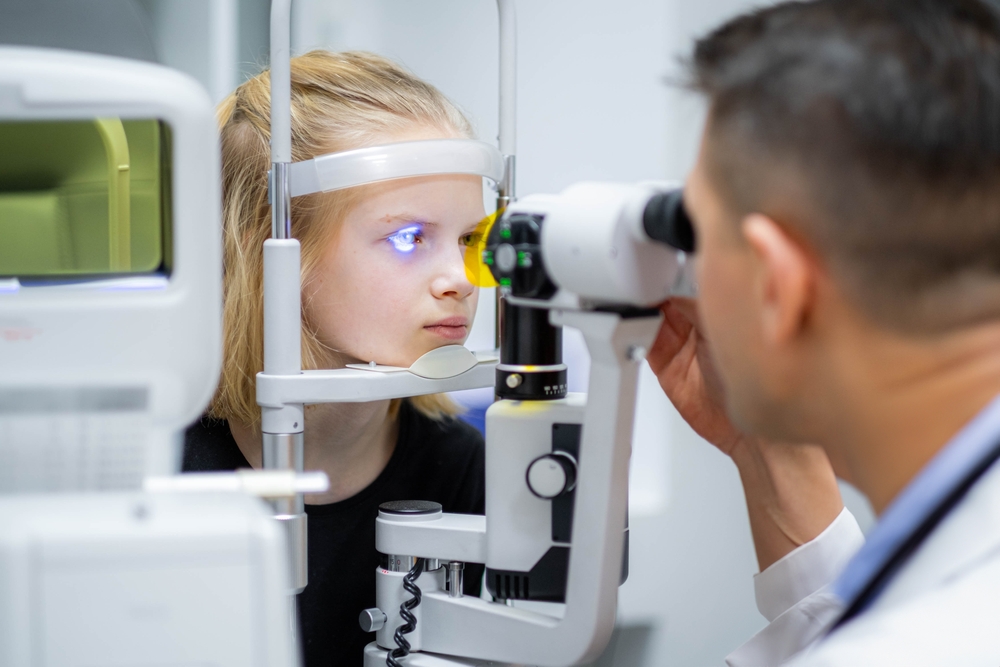
Children rely heavily on their vision for learning, development, and exploring the world around them. Vision problems in children can be subtle and often go unnoticed, as kids may not realize their vision is impaired. Early vision care ensures that any potential issues are identified and treated before they affect a child’s ability to thrive academically, socially, and physically.
The Role of Pediatric Eye Exams and Key Ages
A pediatric eye exam is a comprehensive evaluation of a child’s vision and eye health to ensure proper development and detect any potential issues early. Unlike basic vision screenings, which may only assess visual acuity, a pediatric eye exam involves a thorough assessment of how the eyes focus, move, and work together. During the exam, the eye doctor evaluates aspects such as visual sharpness, depth perception, eye alignment, and the ability to track and focus on objects. These exams are tailored to a child’s age and developmental stage, incorporating tools and techniques that make the process comfortable and engaging for young patients.
The American Optometric Association recommends the following timeline for children’s eye exams:
Infants (6-12 months): A first comprehensive eye exam to ensure proper eye alignment and detect any early signs of vision problems.
Preschoolers (3-5 years): A thorough exam to check for visual acuity, focusing ability, and binocular vision skills essential for learning.
School-Age Children (6+ years): Annual exams to monitor visual development and screen for issues that could impact learning, such as nearsightedness or eye coordination problems.
Common Eye Conditions in Children
Children can experience a variety of eye conditions that, if left untreated, can interfere with their development. Some of the most common conditions include:
Strabismus (Crossed Eyes): A condition where the eyes do not align properly, potentially leading to vision problems and reduced depth perception.
Amblyopia (Lazy Eye): Reduced vision in one eye due to improper development, often caused by untreated refractive errors or strabismus.
Refractive Errors: Conditions such as nearsightedness, farsightedness, or astigmatism that can blur vision and hinder learning.
Binocular Vision Dysfunction (BVD): Difficulty coordinating both eyes to work together, leading to symptoms such as headaches, dizziness, or double vision.
Convergence Insufficiency: A condition where the eyes struggle to focus on close objects, causing strain during activities like reading.
Benefits of Early Detection
Detecting and treating eye problems early offers significant benefits for a child’s overall well-being. One of the most noticeable advantages is improved academic performance. Clear vision is essential for a child to effectively read, write, and engage in classroom activities, which form the foundation of their education and learning experience.
Early intervention also supports better motor skills. Proper visual development enhances coordination and physical activity, enabling children to participate fully in sports, play, and other activities that require precise hand-eye coordination.
Healthy social development is another crucial benefit. When vision problems are addressed early, children are less likely to experience frustration or difficulty interacting with peers. This not only boosts their confidence but also helps them develop essential social skills.
Lastly, early treatment significantly reduces the risk of permanent vision loss. Conditions like amblyopia can lead to lifelong impairment if left untreated, but early detection and care can preserve vision and prevent long-term issues.
Schedule an Advanced Pediatric Eye Exam with Gulfcoast Eye Center Today
Early vision care is one of the most important steps you can take to support your child’s overall development and success. By scheduling advanced pediatric eye exams at key ages, you can ensure early detection of common conditions like strabismus, amblyopia, refractive errors, BVD, and convergence insufficiency. These exams not only safeguard your child’s eye health but also enhance their learning, coordination, and confidence.
Prioritize your child’s eye health and schedule an exam with Gulfcoast Eye Center, and set your child up for a bright future. Visit our office in Sarasota, Florida, or call (941) 207-7700 to book an appointment today.






